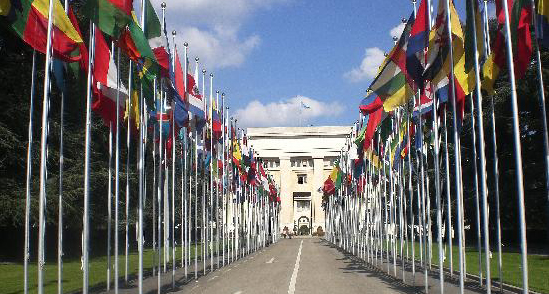UN Human Rights Council Votes to Condemn “Defamation of Religion”

The United Nations Human Rights Council has on 25 March 2010 passed by a narrow margin (20-17, with 8 abstentions) a non-binding resolution condemning “defamation of religion.” The resolution, proposed by Pakistani representative Zamir Akram on behalf of the Organization of Islamic Conference (OIC), includes a strong condemnation of such activities as Switzerland’s recent ban on the construction of minarets on mosques, a ban approved in a nationwide vote last November. In the words of the resolution, the ban is a “manifestation of Islamophobia that clearly contravenes international human rights obligations concerning freedom of religion, belief, conscience and expression.” The OIC representative encouraged Swiss citizens affected by the ban to file suit in Switzerland and before the European Court of Human Rights.
Opponents objected to perceived bias in favor of Islamic states, noting that tight restrictions on Christians, Jews, and others in states such as Saudi Arabia and Libya were not condemned and that the resolution in fact condemned no discrimination other than anti-Muslim practices. The resolution was opposed by the representatives of the European Union and the United States, who both raised concerns about the conflicts between the concepts of defamation of religions and freedom of expression. The US ambassador to the Human Rights Council, Eileen Donahoe, called the resolution an “instrument of division” rather than an effective way to address concerns about discrimination. “We cannot agree that prohibiting speech is the way to promote tolerance, because we continue to see the ‘defamation of religions’ concept used to justify censorship, criminalization, and in some cases violent assaults and deaths of political, racial, and religious minorities around the world,” she said.
This marks the eleventh time in the past twelve years that such a resolution has been passed by the Council, and this year’s margin is the slimmest to date. The breakdown of the March 25 vote in the Human Rights Council was as follows:
Yes (20): Bahrain, Bangladesh, Bolivia, Burkina Faso, China, Cuba, Djibouti, Egypt, Indonesia, Jordan, Kyrgyzstan, Nicaragua, Nigeria, Pakistan, Philippines, Qatar, Russian Federation, Saudi Arabia, Senegal and South Africa.
No (17): Argentina, Belgium, Chile, France, Hungary, Italy, Mexico, Netherlands, Norway, Republic of Korea, Slovakia, Slovenia, Ukraine, United Kingdom of Great Britain and Northern Ireland, United States of America, Uruguay and Zambia.
Abstain (8): Bosnia and Herzegovina, Brazil, Cameroon, Ghana, India, Japan, Madagascar and Mauritius.